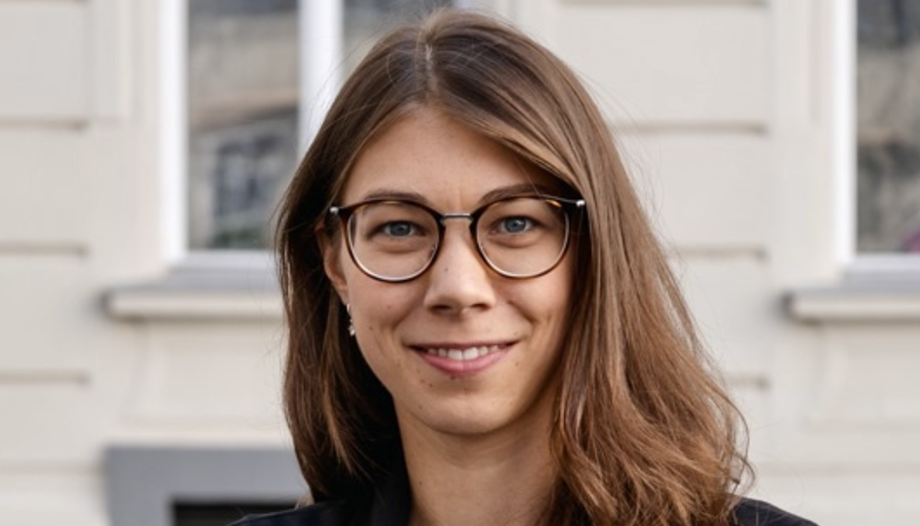The Observatory against Intolerance and Discrimination against Christians in Europe (OIDAC) is a member organisation of the EU Platform for Fundamental Rights that investigates cases of intolerance and discrimination against Christians in Europe and guarantees freedom of religion and expression. Omnes interviewed Anja Hoffmann, executive director of OIDAC.OIDAC) is a member organization of the European Union's Fundamental Rights Platform that investigates cases of intolerance and discrimination against Christians in Europe and guarantees freedom of religion and expression. Omnes interviewed Anja Hoffmann, executive director of OIDAC.
In general terms, what is the current situation of intolerance towards Christians in Europe? with regard to intolerance towards Christians in Europe?
Since the founding of the Observatory on Intolerance and Discrimination more than a decade ago, cases of anti-Christian hate crimes and discrimination have unfortunately increased significantly. On one hand, attacks on churches have increased with arson attacks rising by more than 40% between 2021 and 2022, according to our research.
On the other hand, many Christians, especially those who adhere to traditional Christian moral beliefs, are experiencing increasing pressure when expressing their worldview in the public sphere or at their workplaces. Midwifes or medical doctors who oppose to participate in abortions for reasons of conscience, are threatened with losing their jobs as many states, including Spain, restrict conscientious objections in their medical law. Teachers who express their beliefs in human beings being created as man and woman, hence opposing to address students with “preferred pronouns” have been suspended from their schools. And some Christians in Europe have even been prosecuted for expressing religious views, including Bible scriptures, or arrested by police for praying silently in the so-called “buffer zones” around abortion clinics.
Considering these restrictions, can we say that freedom of speech is still protected in Europe?
The right to freedom of expression is enshrined in international and European human rights law and holds constitutional status in most countries. Under human rights law, states are obliged to protect even “unpopular ideas including those that may offend or shock” and must meet a very high threshold when imposing limitations on freedom of expression.
Despite the high level of protection freedom of expression enjoys in Europe, we see a problematic trend restricting free speech, including religious speech. In the attempt to combat hate speech some governments have introduced extremely broad “hate speech” laws. However, criminalising speech instead of actions has detrimental effect on the public democratic discourse. What is more, it is often unclear which speech amounts to “hate” and will hence be prosecuted. This, in turn, leads to insecurity about what can be said and thus results in a high level of self-censorship. In the UK and Germany, recent opinion polls have shown that half of the population do not dare to say what they think in public out of fear of negative consequences.
Can ‘hate speech laws lead to the criminalisation of people who do not think like the mainstream or those who enact them?
Unfortunately, we do see examples of Christians being criminalised for expression their beliefs. This concerns especially those Christians (or non-Christians alike) who express traditional beliefs on moral issues.
In the UK several street preachers were fined or even arrested by the police for reading from the Bible in public after bystanders reported that they felt “distressed,” which is a criminal offence under the UK Public Order Act. In Spain, the media reported last March that Fr. Custodio Ballester received a summons from a provincial court to answer charges of an alleged “hate crime” after criticising Islam in a pastoral letter. In Finland, former minister and current member of parliament, Pävi Räsänen, is now standing trial at the Supreme Court for alleged “hate speech” after a Bible tweet with which she had critised her church’s sponsoring the Helsinki pride. In Malta, Matthew Grech, a young Christian and former LGBTIQ activist got arrested after sharing his personal experience as a homosexual and how Christianity had changed his life in a TV interview. He was reported to the police, accused of breaching the “Affirmation of Sexual Orientation, Gender Identity and Gender Expression Act” and faces a court trial with up to five months in prison if found guilty.
The list goes on, but the common denominator is that all these laws are extremely broad and make Christians who express their beliefs about moral issues vulnerable to prosecution.
Are governments doing anything to protect religious freedom in their countries?
Most governments in Europe think of religious freedom issues solely on the global scale. Even the Special Envoy for Religious Freedom of the EU is tasked only with religious persecution outside of the EU.
Furthermore, due to religious illiteracy of reporters, religious freedom restrictions in Europe are underreported by the media. This leads to our governments’ lack of sensitivity about domestic abuses of religious freedom and contributes to policies which erode religious freedom in the name of protecting other human interests.
Has the war in Ukraine affected religious freedom?
Since the invasion of Ukraine by Russia, there has been an increase in anti-Christian hate crimes and religious freedom restrictions. However, these issues are complex since they are intertwined with other elements such as politics and ethnicity. As of February 2023, around 297 Christian buildings had been destroyed during the war and as of October 2023, 124 of the 295 UNESCO cultural sites damaged were religious buildings. All these number indicate a disproportionate targeting of churches.
Christian leaders who spoke out against the war were also specifically targeted. Recently, Archbishop Viktor Pivovarov of the Russian Holy Intercession Tikhonite Church was threatened, prosecuted, fined, and imprisoned for sermons in which he criticised the war. During the investigation, Russian forces also tried to demolish his church, since they considered it a public place where crimes against the State were happening.







